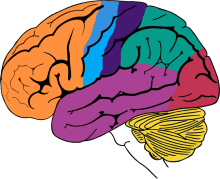

Simone Parekh
high_schoolClass of 2025Los Angeles, California
About
Project: Do bilingual people have double the brain area dedicated to language, or is some of the space overlapping?Projects
- Bilingualism in the Brain with mentor Desiree (Oct. 12, 2022)
Project Portfolio
Bilingualism in the Brain
Started Apr. 4, 2022

Abstract or project description
In a world where learning languages is a vital skill, one can question the makeup of how different languages are processed in the brain. The world has become a global village. There is diversity not only in terms of human beings, but cultural and language diversity as well. To be successful in the present day world, it is important for people to know more than one language for communication, learning, and business. The accepted definition of bilingualism is being able to “speak two languages fluently”, but the definition in the scientific field has been long debated. The reason for debate behind who is considered bilingual is due to a lot of factors, such as one’s skill level in the language, their nativity to the language, their upbringing, and age. Being bilingual has become very predominant and 43% of the population of the world is bilingual. The purpose of this paper is to discuss the true definition of bilingualism, the various factors involved, one being bilingual and the brain’s area of language production and comprehension. In this paper, the central question I aim to answer is, does a bilingual brain, even when a bilingual is only using one language, process linguistic information in the same manner as a monolingual brain? First, I will attempt to define bilingualism and what classifies someone as bilingual with all the factors taken into consideration. Additionally, I will discuss which parts of the brain are involved in language production and comprehension. I will also dissect how a monolingual brain works in comparison to a bilingual brain, and reference various other studies that have investigated how the brain processes language. Finally, I will address my question regarding which processes and areas are the same between monolinguals and bilinguals, and which are different.